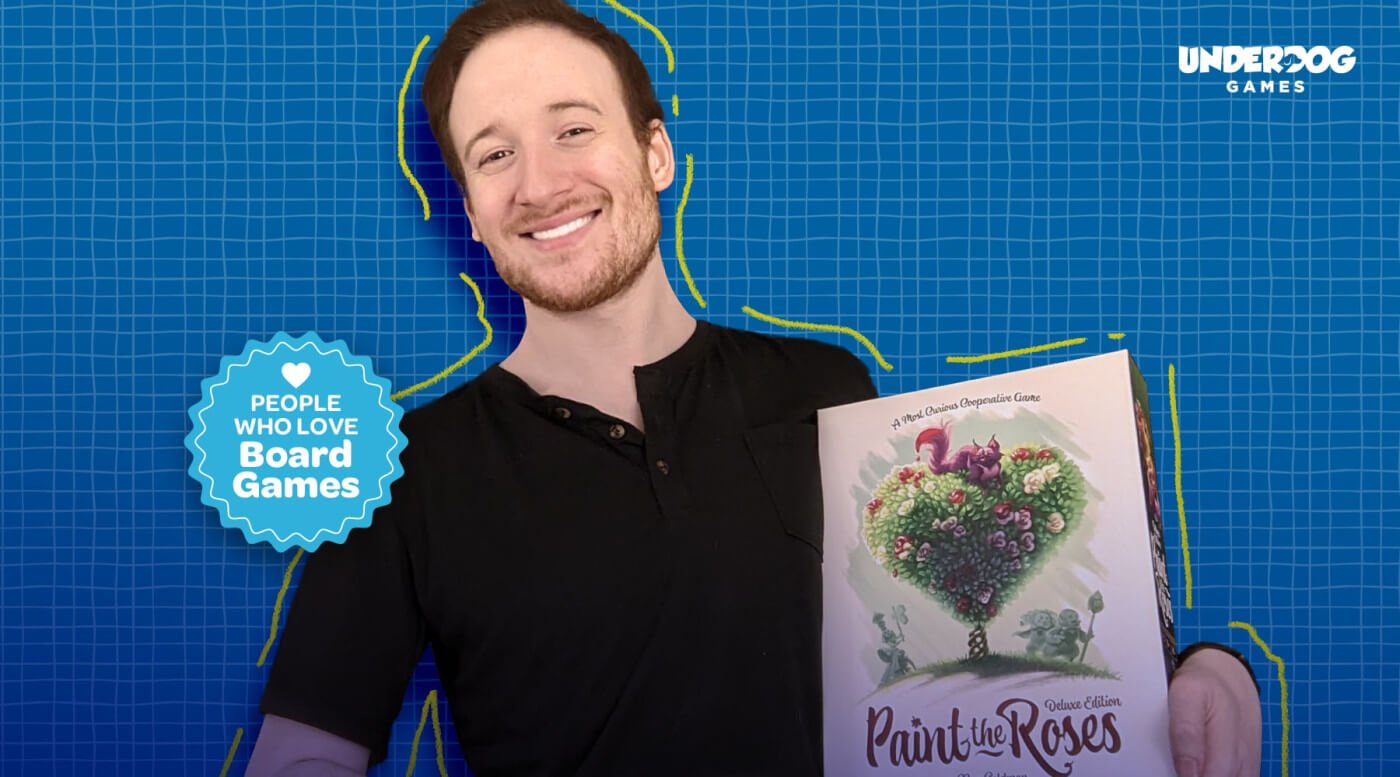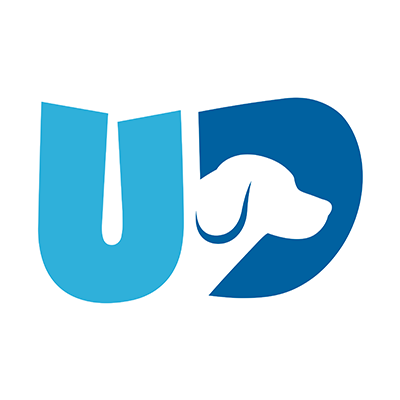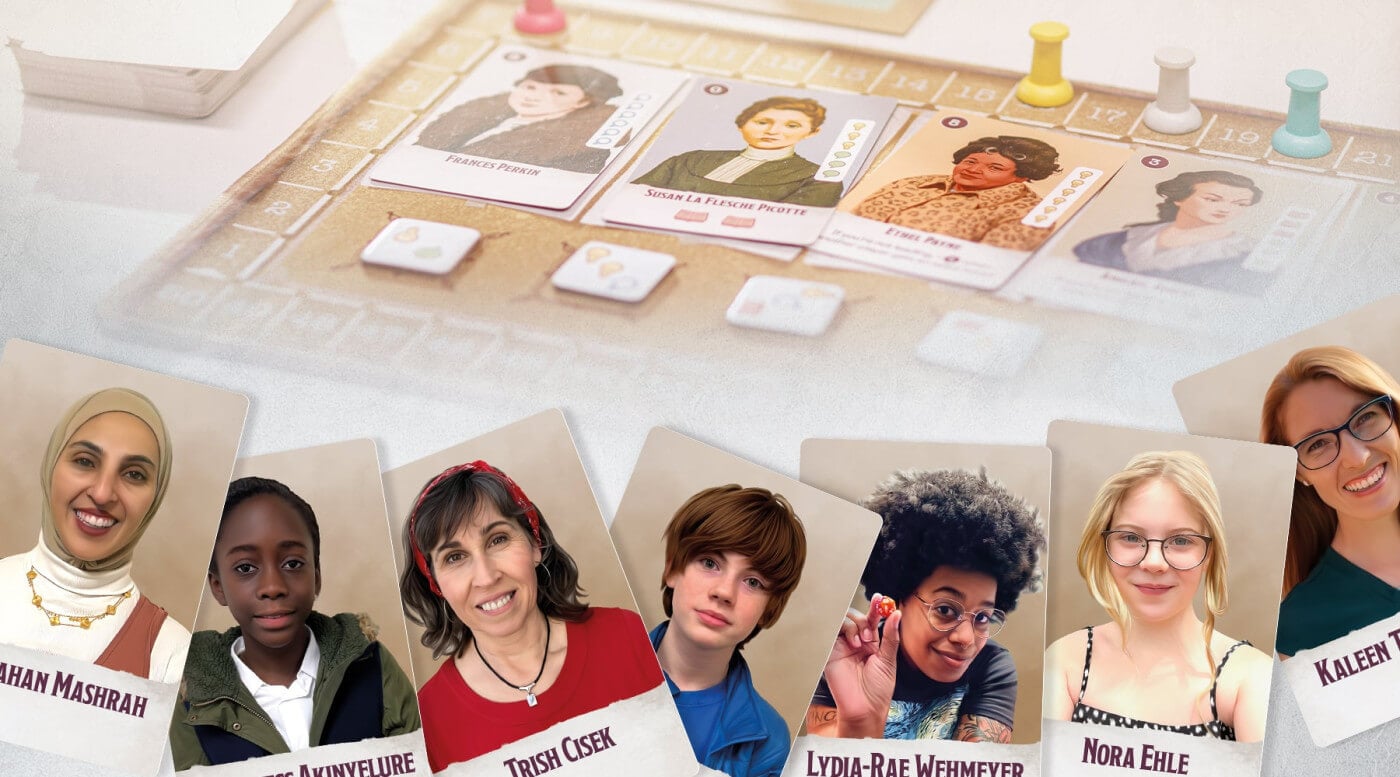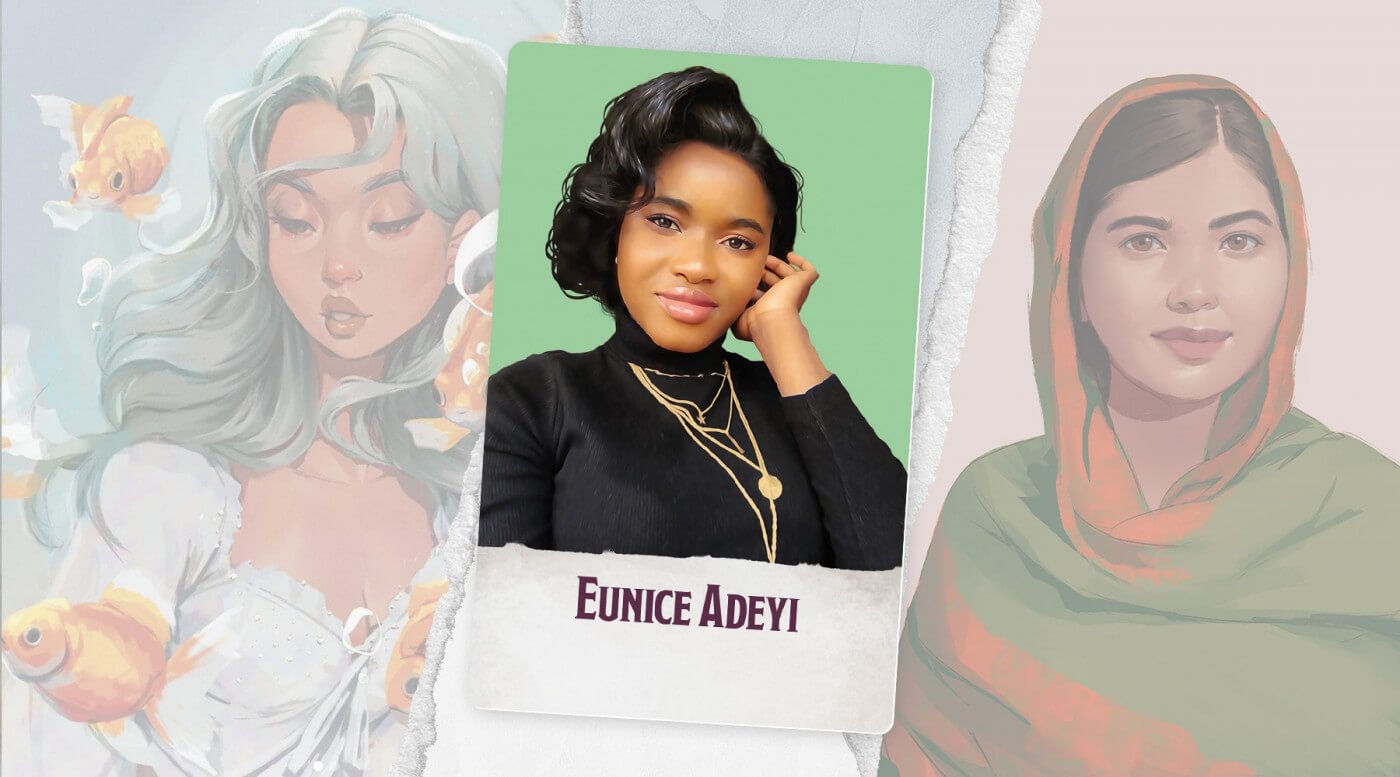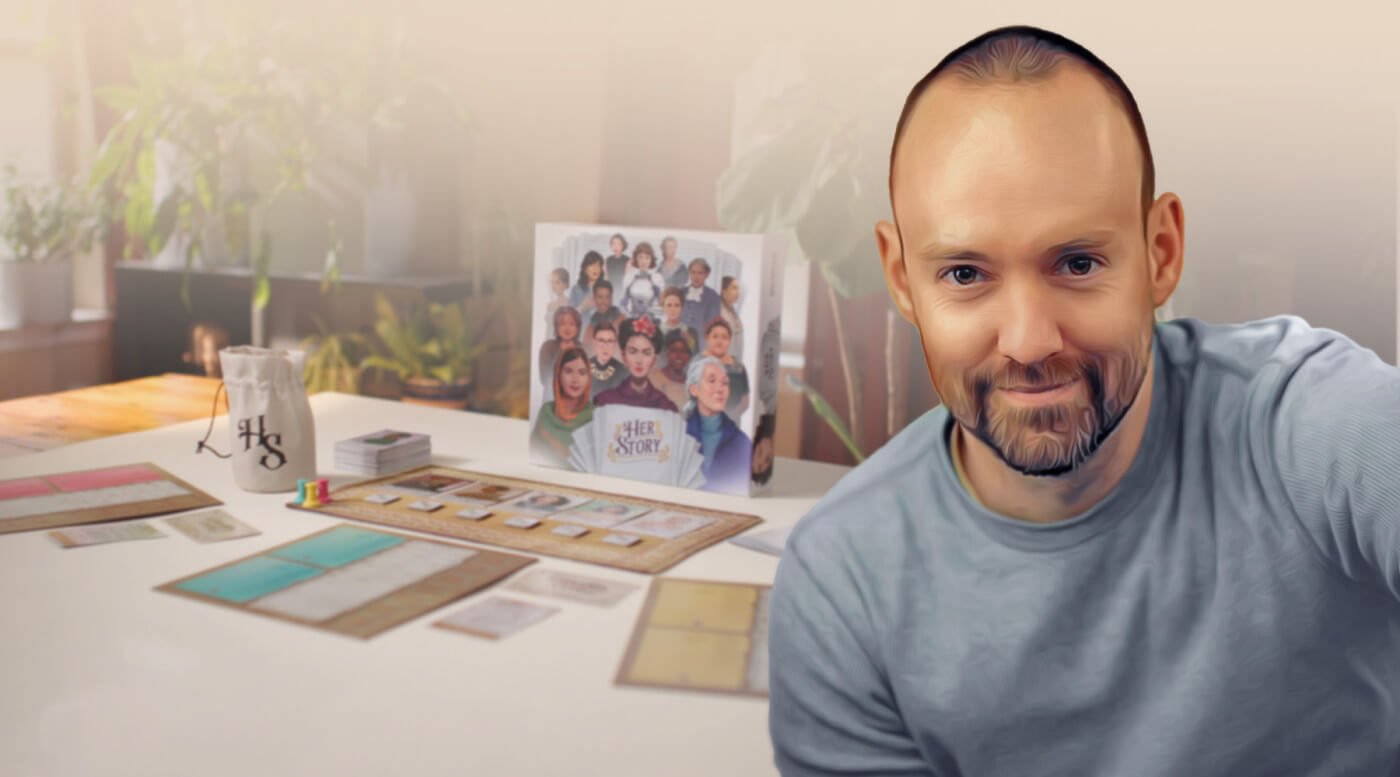The Underdog team is growing, and we want to introduce you to its newest member–Ben Goldman. Ben is our new board game designer who comes with years of great experience in the field and even his very own board game–Paint the Roses. He's also a self-proclaimed fanatic of cooperative games.
See what he has to say about the board game industry, creating his own board games, and his thoughts on Dungeon and Dragons and other cooperative board games.
What’s your involvement in the board game industry?
I started in the industry about 7 years ago at North Star Games as a graphic designer. During the development of Evolution: Climate, I was brought on to playtest and my feedback was valuable enough that my role started to move toward game development. During this time I designed my first published game, Paint the Roses. Now I’m at Underdog Games as a full-time game designer.
What’s a game you remember playing as a kid?
As a kid, my family played lots of card games, like Hearts and Canasta. We had a book full of games that get played with standard decks of cards. I remember reading through it and finding new ones to try.
What’s a go-to board game for you?
Mysterium! What an amazing game. It is so quick to teach, so fun to play, and has amazing moments of laughter built in. The theme is exciting and well-integrated. 10/10. Love it.
Where are you from or where do you live?
I was raised in St. Louis, Missouri (Go, Cards!), but I’ve lived on both coasts as well–California and Georgia. Ever since college, I've lived in Maryland, just north of Washington DC.
What would you like to see change in the board game industry?
There are lots of things I’d like to see change and work towards making that change. I’d like the themes of games to be more thoughtful. For example, there are already too many games about colonizing people, we don’t need any more of those. I think all media that we digest affects us a little bit, and I want the games I create to be fueled by positivity and focused on building a better world.
Tell us about a cool game we should know about and you love it.
Patchwork is a masterclass in simple design that leads to complex choices. That's a primary goal of mine when designing games. There are these simple overlapping systems that force you to make tough decisions, without those decisions being overwhelming.
What do you want us to know about you?
I'm an avid Dungeons & Dragons player. Tabletop role-playing games are such an amazing way to explore ideas, make friends, and connect with people. I started playing in college and haven’t looked back.
Do you have a project, website, or social media you’d like others to know about?
You can follow me on Twitter @benjamingoldman. I tweet about games, life, and whatever the heck happens to be on my mind at the time.
Tell us how Paint the Roses came about or the story of the game.
Paint the Roses started as a problem I wanted to solve. I had played many co-ops, but most of them fell short for me in one of a few ways. My goal was to make a game that addressed all of those issues. Specifically, I wanted to create a cooperative deduction game where players could talk to each other and no one player could instruct everyone else on what to do. Turns out that goal is not an easy one. But it was a compelling one.
I set this goal in 2015. I didn’t have a playable prototype till 2017 (an abstract quilt-making game). And it wasn’t good, but it was something. There was something in that prototype that I felt was important, and so I worked to build around it. I was working at North Star Games at the time and pitched it to them. Co-founder and lead game designer, Dominic Crapuchettes, initially rejected it, pushing me to make the game cleaner, give it a more engaging theme, and add more fun tension. That push was needed and lead to the game that was released this year.
How did you meet or work with our own Nick Bentley?
Nick and I met at North Star Games, where we worked together on designing Oceans.
Why do you love cooperative games so much?
I think in today’s world, trying to cultivate cooperation and communication is much more important to me than cultivating competition. More and more I’d rather be overcoming obstacles with my friends than anything else.
You can follow Ben on Twitter to learn more about his game design process and insights on the board game industry.

